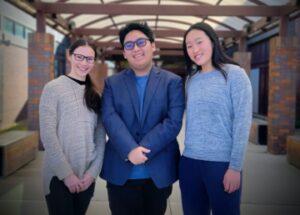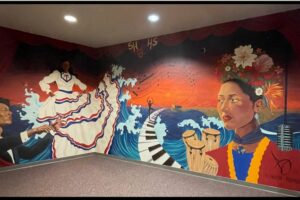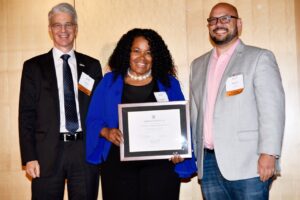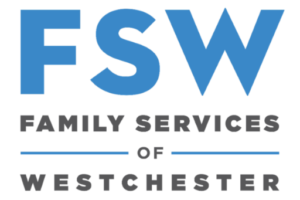
It is that time of year where we shine a light on the students who will represent the Class of 2023 as Valedictorian and Salutatorians. We caught up with Tevin Kim, Briarcliff High School’s 2023 Valedictorian, as well as the two Salutatorians – Annabelle Kung and Madeline Rhode – to find out how their year has been, what advice they have for incoming freshmen and what they have learned during their time at Briarcliff High School.
Q: What college are you going to in the fall and what will be your major?
Tevin Kim: I will be attending Columbia University studying data science and/or economics.
Annabelle Kung: I have not decided where I will be going to in the fall, but I plan to major in data science and/or information systems.
Madeline Rhode: I will be going to Princeton University in the fall, and, while I am not completely sure what my major will be, possibilities include anthropology or chemistry.
Q: Do you know what career you plan to have and if so – what is it?
TK: I want to pursue a career that allows me to blend as many of my diverse interests as I can, which is why I want to pursue data science or consulting as possible careers.
AK: I am unsure of what career I would like to pursue in the future, but studying data science will allow me to explore a variety of job prospects.
MR: I have not yet decided on a career, but I would love to engage in some form of scientific research in the future.
Q: Who is your role model and why?
TK: It’s hard to come up with just one role model because everyone in my life has qualities I want to exhibit. I admire my dad’s infinite optimism and his knack for creative problem-solving. I love my mom’s compassion and her impeccable ability to listen. I respect my grandfather’s endless tenacity and vitality as he battles with ongoing health issues.
AK: My parents have been my biggest role models and supporters. I strive to have their hardworking, down to earth, and relentlessly dedicated spirit.
MR: My biggest role model is my mom who truly exemplifies the type of person that I strive to emulate: kind, generous, stubborn and gritty. Notably, as a chief in academic surgery, she is inspirational as she breaks down barriers in medicine and defies the status quo, through true hard work and dedication to a seemingly unforgiving field.
Q: How has BHS prepared you for college? What is the most important thing you learned at BHS?
TK: Academically, BHS prepares all its students by giving them a plethora of opportunities to challenge themselves and to grow in knowledge and curiosity with teachers who are dedicated to developing critical-thinking skills that last a lifetime rather than simply spoon-feeding information. Arguably even more important are the soft skills like maintaining fruitful relationships and engaging in meaningful discussion that I have learned from BHS.
AK: BHS has provided me with an incredibly enriching environment to develop as an individual, student, and classmate, setting me up well to succeed in college. The academic rigor of classes and focus on problem-solving has fostered my love of learning. More importantly, the in-depth discussions with classmates and hands-on experiences inside and outside of the classroom have shown me the power of collaboration.
MR: BHS has taught me many life and professional skills that I will carry with me to college. Particularly, my struggles in taking numerous difficult classes, while balancing the workload with all my extracurriculars, have helped me to develop self-awareness concerning my motivational tendencies and time-management skills. I have gained a good grasp of how I respond to stress and how best to corral myself when feeling unmotivated.
Q: What are some of your hobbies and extra-curricular activities?
TK: Primarily, I love to explore and photograph the world around me from the littlest rock to the grandest mountain. I play the viola with the BHS string and chamber orchestras as well as organizations (GWYOA and NYSSMA all-state) out of school. In school, I am co-editor-in-chief of BHS’s Bruin Yearbook as well as captain of our school’s academic challenge and mathletes teams. Outside of school, I had the opportunity to research racial and algorithmic fairness in kidney function evaluation at Columbia University Medical Center.
AK: Most of my time outside of school is spent in the pool. I’ve been swimming for the varsity team since eighth grade and have been a captain for the past three years. Outside of school, I’m a member of the BGNW Marlins national team. When I am not swimming, I enjoy cooking and baking for friends and family, knitting baby hats for the New York Milk Bank and or traveling the globe and exploring the local cuisine.
MR: My most significant extracurricular activity is dance, both in school and outside of it. I began dancing when I was five years old at the Logrea Dance Academy and am also part of Westchester Ballet Company (a nonprofit regional ballet company). In addition, I am a part of a number of clubs such as Briars & Ivy, Chamber Orchestra, and NHSDA (National Honors Society for Dance Arts). Hobby-wise, I am an avid archer, choreographer, calligrapher and reader, among other things.
Q: Do you have any time-management tips for juggling school, extra-curricular activities, etc.?
TK: The three most important skills for time management are organization, prioritization, and balance. After you figure out what needs or can be done, decide what is most important to you, but be mindful of how pressing each task is. In the end, everyone has the same 24 hours. It’s all a matter of how we choose to spend them. In the words of my dad, the answer to life is “BCD”: “Birth. Choice. Death.”
AK: Time management is highly specific to each individual, so I would encourage students to find a system that works for them and stick to it. Time highly limited, so it’s important to spend it wisely by prioritizing. For those who struggle with procrastination, building small habits and eliminating distractions can help develop intrinsic motivation and discipline to complete work when external motivation is low. It’s easy to become overwhelmed and burnt out by a heavy course load and a seemingly endless list of obligations, but remember that sleep and mental health are important in the long run, too.
MR: As someone who gets very easily bored with the mundane nature of repetitive schedules and routines, my best advice is to switch it up. Keep newness and excitement in everything that you do – even if it isn’t all that new or exciting. For me, the best way to do that is to surprise myself with different plans for each day. On one day I might shower before doing my homework rather than after or on another I might move locations when I feel my motivation slipping. Just have little things to look forward to every day. But, perhaps more importantly, don’t be afraid to take breaks or admit when you need help balancing a schedule. Burnout is real.
Q: What advice would you give to parents who want to help their teenagers succeed?
TK: I would ask parents to support their children’s passions and, if they can’t find their passions, to help find them. No amount of helicopter parenting will create passion, so I think a part of a parent’s role is to help their children realize their passions and support them in their endeavors. Parents should certainly be there to guide their children, but at the end of the day, teenagers need to start to find their own way in life, and pursuing their passions is a great way to begin doing so.
AK: I would encourage parents to let their teen become more independent and discover their passions. Striking a balance between being an involved, supportive parent and a helicopter parent can be difficult but I think teens can benefit from clear expectations and positive reinforcement to guide them through their high school careers and instill in them a sense of self-motivation.
MR: To the parents: encourage your child to be inquisitive and curious, to learn not just for a grade, but because they want to know. Understand that being the best at everything isn’t the gold standard (or at the very least shouldn’t be). It is about loving what you do and finding what you enjoy.
Q: Do you have any advice for current eighth graders on how to make the most of their high school years?
TK: High school is all about finding harmony between academic growth, personal growth and plain fun. Yes, academic growth is important, but don’t let the other two go neglected. High school is the time to begin to establish who you are and what type of a mark you want to leave on the world, and the only way to do that is to learn about yourself. It also may not be such a bad idea to make some fun memories that you can look back at as you move on to bigger and better things.
AK: High school can be overwhelming at first but it’s also an opportunity for growth. High school is a great time to find your passions or niche so don’t be afraid to explore different areas of interest. In doing so, you’ll discover how to challenge yourself but also know your limits. On the same note, try to avoid the trap of taking a certain class or participating in a certain activity just because you’ve been told it looks impressive to colleges. Investing your time in something you genuinely care about will make high school a much more meaningful experience. Finally, academics are important but they are not everything – don’t forget to take time to develop as an individual and enjoy the experiences that come your way.
MR: Being completely honest, high school isn’t always peachy sunshine, and my biggest advice for incoming freshman would be to find those hobbies, those people, those subjects that you love. Not everything you do will be your favorite, nor will it be easy, but it is crucial to maintain the things that support you, the things that you can always fall back on. Yet another piece of advice is to be stubborn: don’t let questions go unanswered or gaps in your understanding remain; don’t let yourself give up, especially when things get hard.
Q: If you could meet a famous person – living or dead – who would it be and what would you want to talk with them about?
TK: Although I personally disagree with some of his beliefs, I would want to meet the 19th century German statesman Otto von Bismarck. Bismarck was known for his strategic pragmatism and unbreakable determination, two skills I believe are important to develop in life.
AK: I would love to meet Eileen Gu. I admire her tenacity and poise as a multitalented individual and I would be interested in talking to her about her experience in navigating college, athletics, modeling and being in the public eye.
MR: I would love to speak with V.E. Schwab, one of my favorite authors of notable books such as “The Invisible Life of Addie LaRue” and “Vicious.” V.E. Schwab’s repertoire of stories is incredibly diverse, but I would want to ask about her relationship with art, as a writer and as someone whose books emphasize the importance of art and inspiration in the world as a source and conduit for wonder. I would also love to talk about her focus on the uncanny, writing stories replete with ghosts, devils and powers fueled by death, since they serve as a compelling backdrop for raw humanity in her novels.
Q: What is your favorite quote?
TK: “Sometimes I’ll start a sentence, and I don’t even know where it’s going. I just hope I find it along the way.” – Michael Scott (“The Office”)
AK: “The future is something which everyone reaches at the rate of 60 minutes an hour, whatever he does, whoever he is.” – C.S. Lewis
MR: “Do not regret too much the choices you have made in the past… only make the right ones in the future. We are ever capable of change and ever capable of being our better selves.” – Cassandra Clare







